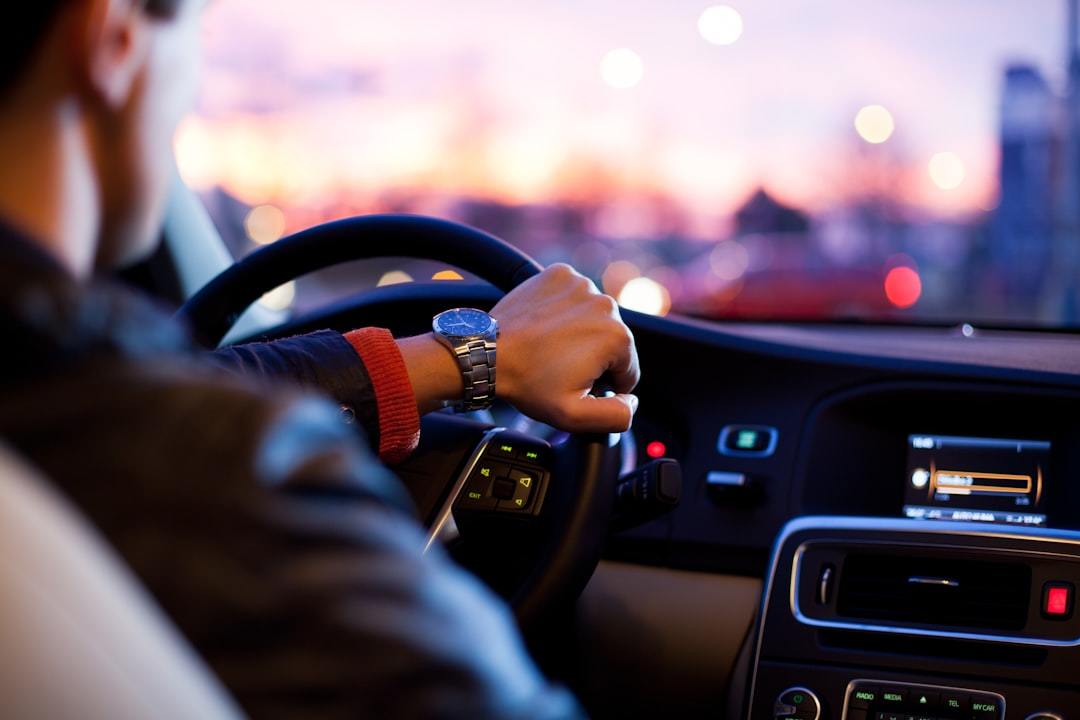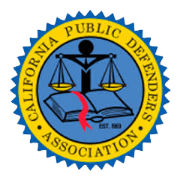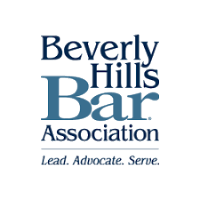
Picture this: It’s late at night, and you’re driving home after a dinner out with friends. Suddenly, you see flashing lights ahead – it’s a DUI checkpoint. Your heart races as you wonder, “What are my rights? What should I do?” Don’t panic. I’m here to guide you through everything you need to know about DUI checkpoints in California.
I’ve walked in your shoes, so believe me when I say I know exactly how mind-boggling and scary this whole thing can be. The good news? Understanding your legal rights is half the battle. When you know what to anticipate, you’ll be able to approach this with self-assurance and focus. Ready to take the first step? Come on, let’s do it together!
What Are Your Rights at a DUI Checkpoint in California?
When you come across a DUI checkpoint in California, it’s normal to feel a bit anxious, regardless of your sobriety. Familiarizing yourself with your rights and the checkpoint procedure can make the experience less intimidating.
As a DUI attorney with over a decade of experience, I’ve seen firsthand how understanding your legal rights can make all the difference in the outcome of a DUI case.
Understanding the Legality of DUI Checkpoints
Sobriety checkpoints have been a controversial topic for a long time. In the Golden State, DUI checkpoints are allowed, but they must adhere to strict rules established by the highest court in the land.
To keep things fair and safe, the checkpoint’s announced ahead of time, cars are pulled over randomly, and nobody’s held up for too long.
Your Fourth Amendment Rights
The Fourth Amendment protects against unreasonable searches and seizures. At a DUI checkpoint, officers must have probable cause or reasonable suspicion to detain you for an extended period or search your vehicle.
Simply being stopped at a checkpoint does not give officers the right to search your car without additional justification.
Knowing What You Are Legally Required to Do
When stopped at a DUI checkpoint, you are required to provide your driver’s license, registration, and proof of insurance. You are not obligated to answer questions about where you’ve been or whether you’ve been drinking.
Politely decline to answer these questions and assert your right to remain silent. Remember, anything you say can be used against you in court.
How to Handle a DUI Checkpoint Stop
Encountering a DUI checkpoint can be stressful, but knowing what to expect and how to interact with law enforcement officers can help you navigate the situation more effectively.
In my experience, remaining calm and polite while asserting your rights is the best approach when dealing with a sobriety checkpoint stop.
What to Expect During a DUI Checkpoint Stop
When you roll up to a DUI checkpoint, get ready to hand over your license, registration, and insurance card. The officers might ask if you’ve had a few drinks and keep an eye out for any signs that you’re not quite yourself, like slurred speech, glassy eyes, or the unmistakable scent of alcohol.
It’s crucial to remain calm and avoid confrontational behavior, as this may escalate the situation.
Interacting with Law Enforcement Officers
When interacting with officers at a DUI checkpoint, remember to be polite and respectful. Avoid arguing with the officers or engaging in confrontational behavior, as this may be used against you later.
If you choose to exercise your right to remain silent, do so respectfully. A simple, “I respectfully decline to answer any questions” should suffice.
Field Sobriety Tests and Breathalyzer Tests
Officers may ask you to perform field sobriety tests or take a breathalyzer test if they suspect impairment. In California, you can refuse field sobriety tests without penalty.
However, under the state’s implied consent laws, refusing a breathalyzer or chemical test can result in license suspension and other consequences.
Knowing When to Remain Silent
You have the right to remain silent when questioned by officers at a DUI checkpoint. If an officer asks if you’ve been drinking or pressures you to answer incriminating questions, politely decline to answer and state that you are exercising your right to remain silent.
Remember, anything you say can be used against you in court, so it’s best to avoid providing any information that may incriminate you.
Implied Consent Laws and DUI Checkpoints in California
California’s implied consent laws play a significant role in how DUI checkpoints are conducted and what drivers are required to do when stopped at a sobriety checkpoint.
As a DUI attorney, I’ve seen many cases where drivers were unaware of the consequences of refusing a chemical test under California’s implied consent laws.
Understanding California’s Implied Consent Laws
California’s implied consent laws state that by driving on the state’s roads, you have consented to take a chemical test (blood or breath) if arrested for suspicion of DUI.
Refusing to take the test after being arrested can result in automatic license suspension and enhanced penalties if convicted of DUI.
Consequences of Refusing a Chemical Test
If you refuse a chemical test after being arrested at a DUI checkpoint, you face a one-year license suspension for a first offense, a two-year suspension for a second offense within 10 years, and a three-year suspension for a third offense within 10 years.
Refusing a breathalyzer can come back to bite you in court, potentially leading to harsher punishments if found guilty.
When Implied Consent Applies
Implied consent laws apply after you have been arrested for suspicion of DUI. Before an arrest, you can refuse field sobriety tests and preliminary alcohol screening tests without penalty.
However, once arrested, you are required to submit to a chemical test, or face the consequences of refusal under implied consent laws.
What to Do If You Are Arrested at a DUI Checkpoint
Being arrested at a DUI checkpoint can be a frightening experience, but knowing your rights and how to handle the situation can help protect you in the long run.
As an experienced DUI lawyer, I’ve guided countless clients through the process of dealing with a DUI arrest and ensuring their rights are protected every step of the way.
Invoking Your Right to Remain Silent
If you are arrested at a DUI checkpoint, invoke your right to remain silent by clearly stating that you wish to remain silent and do not want to answer any questions without an attorney present.
Do not engage in conversation with officers or try to explain your situation, as anything you say can be used against you.
Contacting an Experienced DUI Lawyer
After being arrested at a DUI checkpoint, contact an experienced DUI lawyer as soon as possible. A skilled attorney can help protect your rights, guide you through the legal process, and build a strong defense on your behalf.
Many DUI lawyers offer free initial consultations and can advise you on the best course of action for your specific case.
Understanding Miranda Rights
If you are arrested at a DUI checkpoint, officers must read you your Miranda rights before conducting a custodial interrogation. These rights include the right to remain silent and the right to an attorney.
You can safeguard yourself from self-incrimination and ensure you have an attorney present during questioning by exercising your rights.
Handling Police Questioning
If officers continue to question you after you’ve invoked your right to remain silent, politely repeat that you do not wish to answer any questions without an attorney present.
Do not be intimidated by persistent questioning or attempts to engage you in conversation. Stick to your rights and wait to discuss your case with your lawyer.
Common Misconceptions About DUI Checkpoints
There are many misconceptions surrounding DUI checkpoints and what drivers can and cannot do when encountering one. As a DUI attorney, I’ve heard countless myths and misunderstandings about sobriety checkpoints.
Don’t let misconceptions cloud your judgment at a DUI checkpoint. Get the facts straight so you can stand up for your rights and make smart decisions in the moment.
Legality of DUI Checkpoints in California
A common misconception is that DUI checkpoints are illegal in California. However, the Supreme Court has ruled that DUI checkpoints are constitutional as long as they follow specific guidelines.
These guidelines include being publicized in advance and using a neutral formula for stopping vehicles.
Myth of Avoiding Checkpoints
Some people believe that they can avoid a DUI checkpoint by turning around or taking an alternate route. However, officers often monitor the surrounding area for suspicious behavior.
Trying to dodge a checkpoint? Watch out – you might get stopped and grilled by the authorities.
Unlawful Searches and Seizures
Another misconception is that officers can search your vehicle or person without probable cause at a DUI checkpoint. In reality, the Fourth Amendment protects against unreasonable searches and seizures.
Officers must have probable cause or reasonable suspicion to conduct a search or detain you for an extended period.
Challenging the Legality of a DUI Checkpoint Stop
Some folks reckon they can get out of a DUI arrest by claiming the checkpoint was against the law. Sure, checkpoints have to stick to specific guidelines to be legally legit, but arguing that point in court is usually a losing battle.
When facing a DUI charge, having a skilled attorney by your side makes all the difference. They’ll meticulously analyze your case and develop a comprehensive strategy to fight for the best possible outcome.
Table of Contents:
Conclusion
DUI checkpoints can be a stressful experience, but remember – knowledge is power. By understanding your rights, you can navigate these situations with confidence and protect yourself from potential legal consequences.
Remember, at a DUI checkpoint, you’re required to provide your license, registration, and insurance. But you have the right to remain silent and refuse field sobriety tests. If arrested, invoke your right to an attorney and politely decline to answer questions.
DUI charges stemming from a checkpoint stop can be overwhelming, but you don’t have to face them on your own. Seek the assistance of a knowledgeable DUI lawyer who can provide the guidance and representation you need to navigate this challenging situation.
Stay informed, stay safe, and always prioritize your legal rights. With the right knowledge and support, you can handle DUI checkpoints with clarity and confidence.





